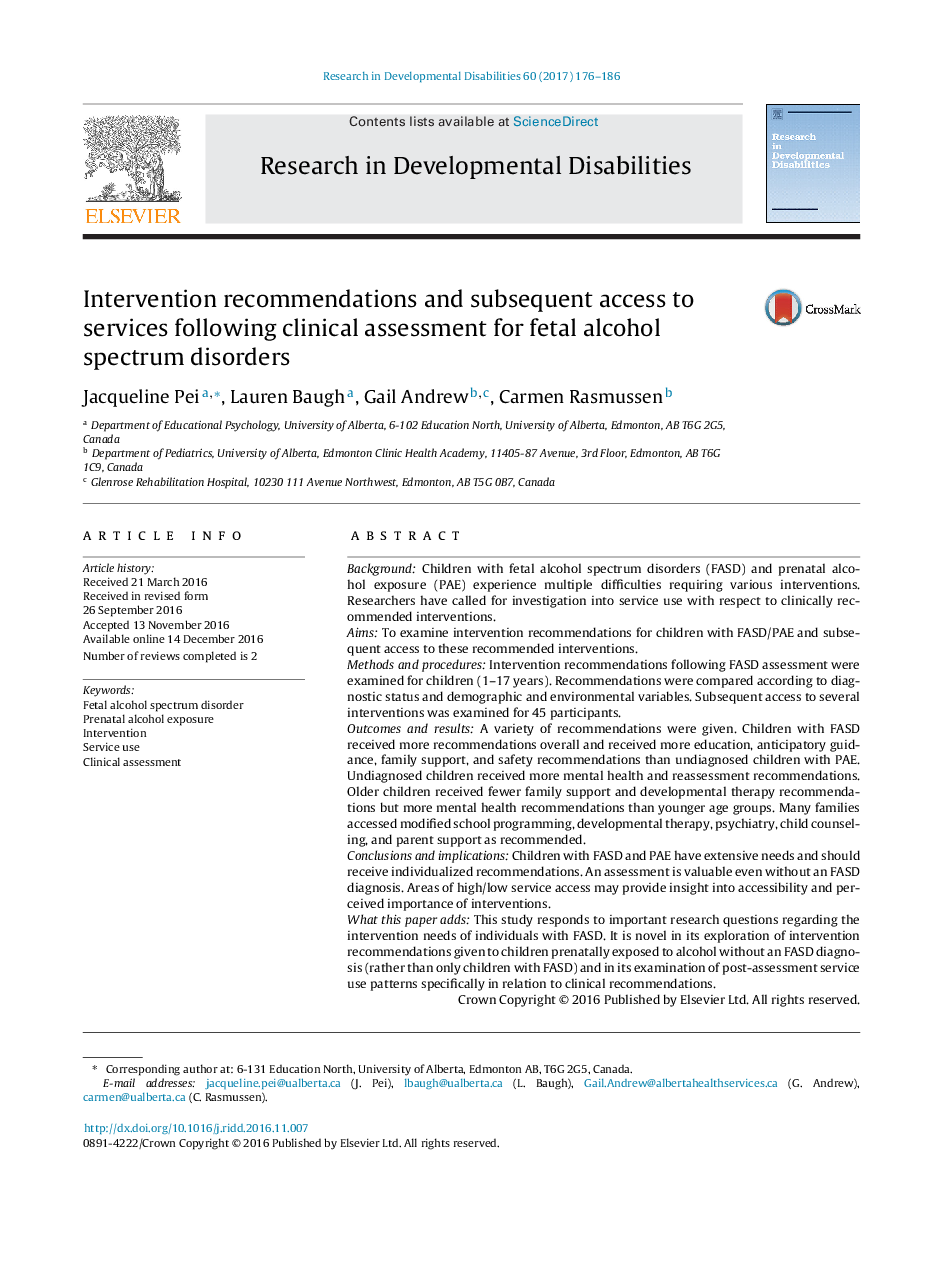| کد مقاله | کد نشریه | سال انتشار | مقاله انگلیسی | نسخه تمام متن |
|---|---|---|---|---|
| 4941026 | 1436631 | 2017 | 11 صفحه PDF | دانلود رایگان |
- Education, medical, and anticipatory guidance recommendations were very common.
- Children with FASD received more recommendations overall than those without FASD.
- Presence of FASD diagnosis was related to which recommendations were given.
- Age was related to which types of recommendations were given.
- Many families accessed recommended interventions, such as school support.
BackgroundChildren with fetal alcohol spectrum disorders (FASD) and prenatal alcohol exposure (PAE) experience multiple difficulties requiring various interventions. Researchers have called for investigation into service use with respect to clinically recommended interventions.AimsTo examine intervention recommendations for children with FASD/PAE and subsequent access to these recommended interventions.Methods and proceduresIntervention recommendations following FASD assessment were examined for children (1-17 years). Recommendations were compared according to diagnostic status and demographic and environmental variables. Subsequent access to several interventions was examined for 45 participants.Outcomes and resultsA variety of recommendations were given. Children with FASD received more recommendations overall and received more education, anticipatory guidance, family support, and safety recommendations than undiagnosed children with PAE. Undiagnosed children received more mental health and reassessment recommendations. Older children received fewer family support and developmental therapy recommendations but more mental health recommendations than younger age groups. Many families accessed modified school programming, developmental therapy, psychiatry, child counseling, and parent support as recommended.Conclusions and implicationsChildren with FASD and PAE have extensive needs and should receive individualized recommendations. An assessment is valuable even without an FASD diagnosis. Areas of high/low service access may provide insight into accessibility and perceived importance of interventions.What this paper addsThis study responds to important research questions regarding the intervention needs of individuals with FASD. It is novel in its exploration of intervention recommendations given to children prenatally exposed to alcohol without an FASD diagnosis (rather than only children with FASD) and in its examination of post-assessment service use patterns specifically in relation to clinical recommendations.
Journal: Research in Developmental Disabilities - Volume 60, January 2017, Pages 176-186
